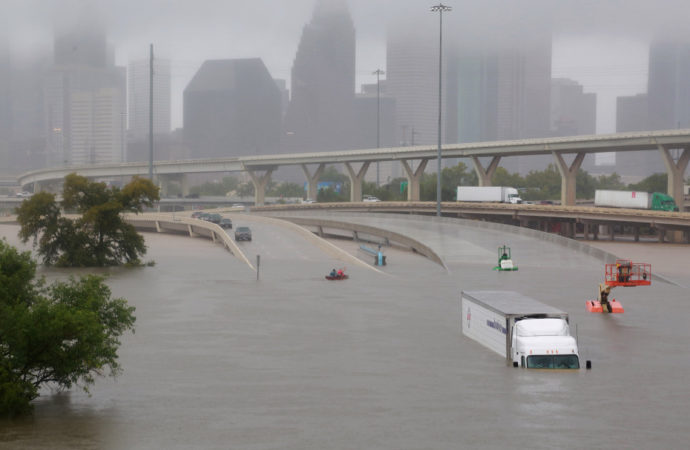by Paul Prentice
As the human tragedy and economic damage from Hurricane Harvey continue to mount, it won’t be long until several tired old economic myths are trotted out. First among these is what Frederic Bastiat called the “Broken Window Fallacy”. Accountants-disguised-as-economists will point to the so-called economic stimulus from the rebuilding efforts.
But the resources must come from elsewhere in the economy, and they come at the opportunity cost of what they would have otherwise produced. The rebuilding efforts will be seen. But the opportunity cost will be unseen. Without the hurricane, we could have had the value of that foregone production plus have retained the resources that were destroyed – including people, property, and infrastructure. After the hurricane, all we have is the rebuilding. There is no free lunch. It is as if some economists think we can destroy our way to prosperity.
Secondly, as pointed out in a recent Gazette editorial, the issue of “price-gouging” has already come up. For example, the price of bottled water has skyrocketed in some areas. This is as it should be. With the destruction of normal water sources, the demand for bottled water rose dramatically. But much of the supply of bottled water was simultaneously destroyed. When demand increases while supply decreases, prices must rise.
People can ignore the law of supply and demand, just as people can ignore the law of gravity. But people cannot ignore the consequences of ignoring these laws. When governments interfere with the natural process of the price-driven marketplace-ecosystem, by forcing prices to remain artificially low, it only creates shortages. How else should we allocate the scarce bottled water? To the first people who can bully their way to the front of the line, leaving the rest with nothing?
If high prices are allowed to spontaneously emerge, this incentivizes additional supply to come in from outside the affected area. In a market economy, high prices cure high prices. Instead of the preening moralization by confused politicians and the fake media, perhaps a lesson in basic supply-and-demand is in order.
Finally, there is what economists call “Moral Hazzard”. This is a situation whereby people are incentivized to reap the benefits of their choices, but society pays much of the cost. In the case of living near the ocean, people get the benefits of access to that resource. But it comes at a risky cost; the probability of hurricane damage. Basic economics teaches us that scarce resources are best allocated when people who receive a benefit pay the cost.
Federal flood insurance is subsidized by the general taxpayer. This also comes at an opportunity cost. Every dollar of taxpayer subsidy is a dollar we don’t get to spend on our own values, including the value we get from engaging in private charity. Worse, many people in flood-prone areas choose instead to spend their money on other things and do not purchase even the subsidized flood insurance. When they get flooded, the federal bailouts come anyway. Taxpayers pay for the risk of those who live in hurricane-prone areas, but get none of the benefits.
Certainly, I applaud the generosity and valiant efforts of private citizens and private relief organizations. And I am not arguing for no government assistance. But this should not blind us to the economic myths of government “stimulus”.









